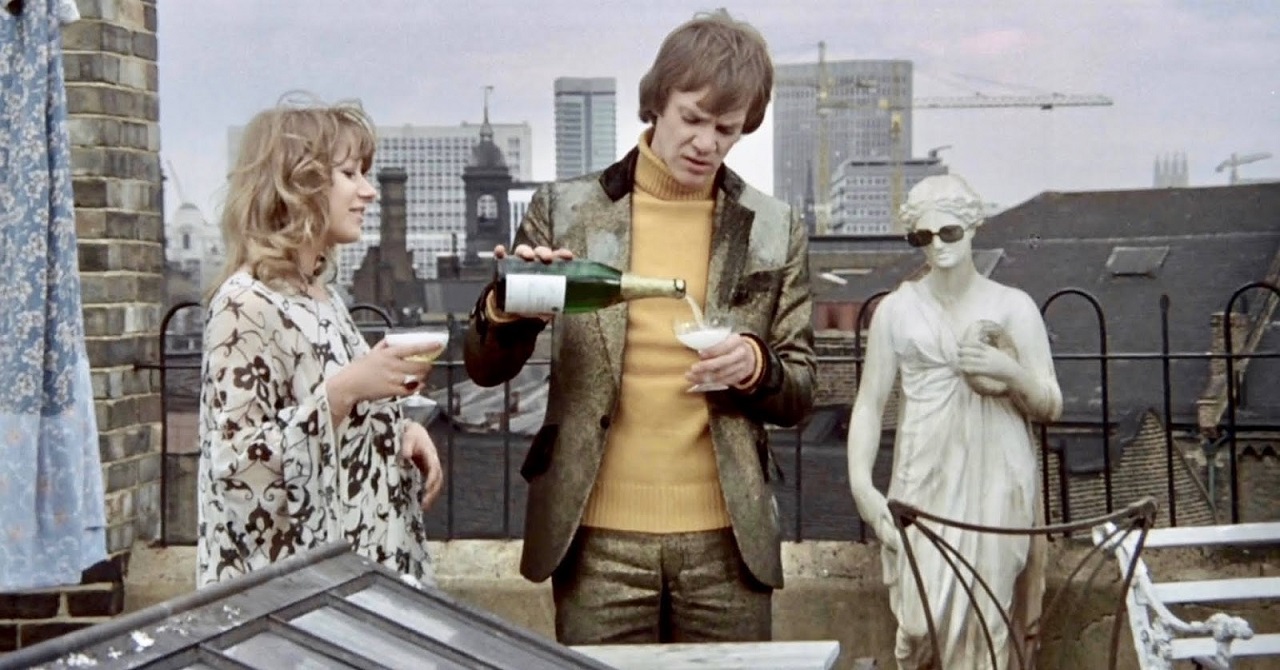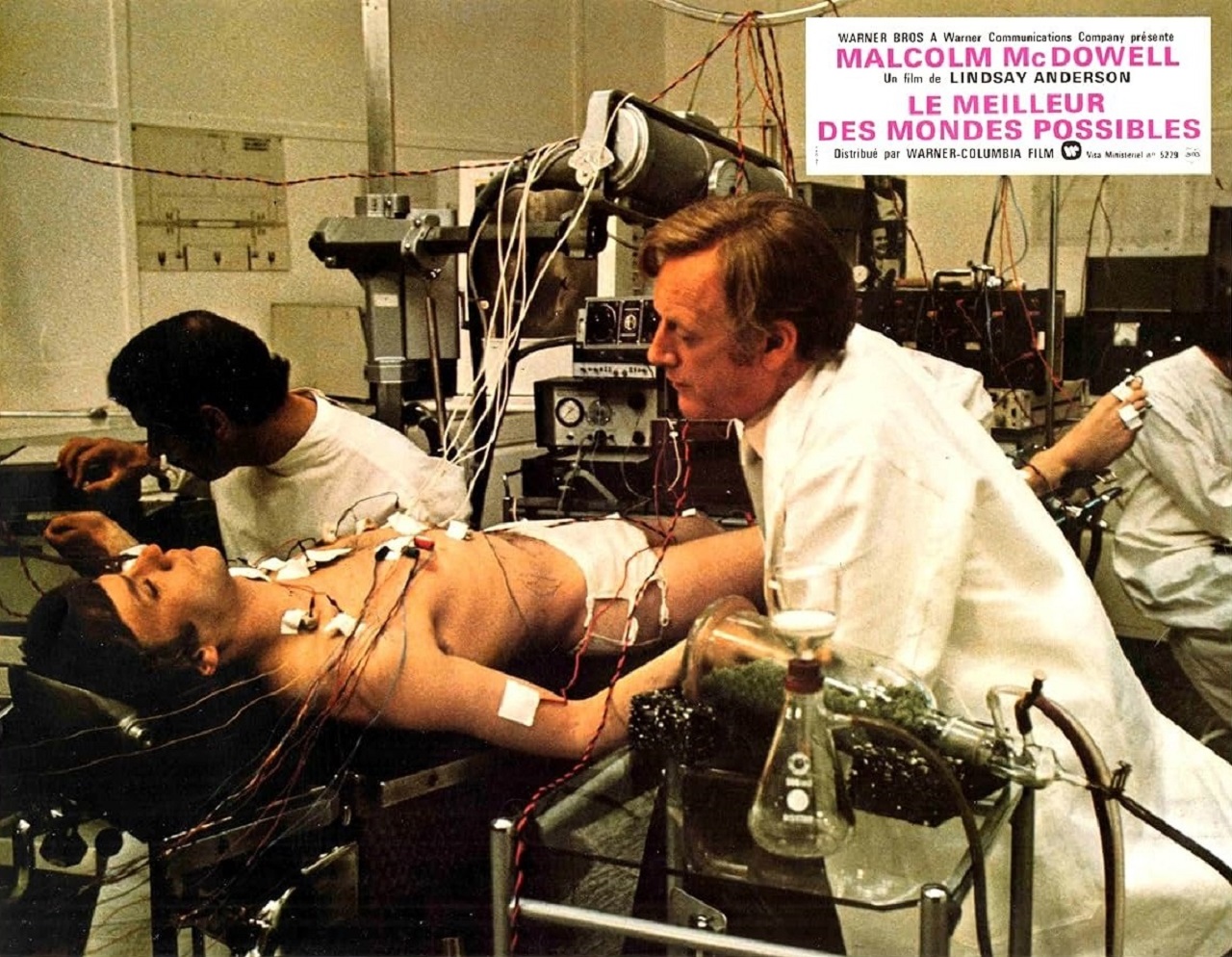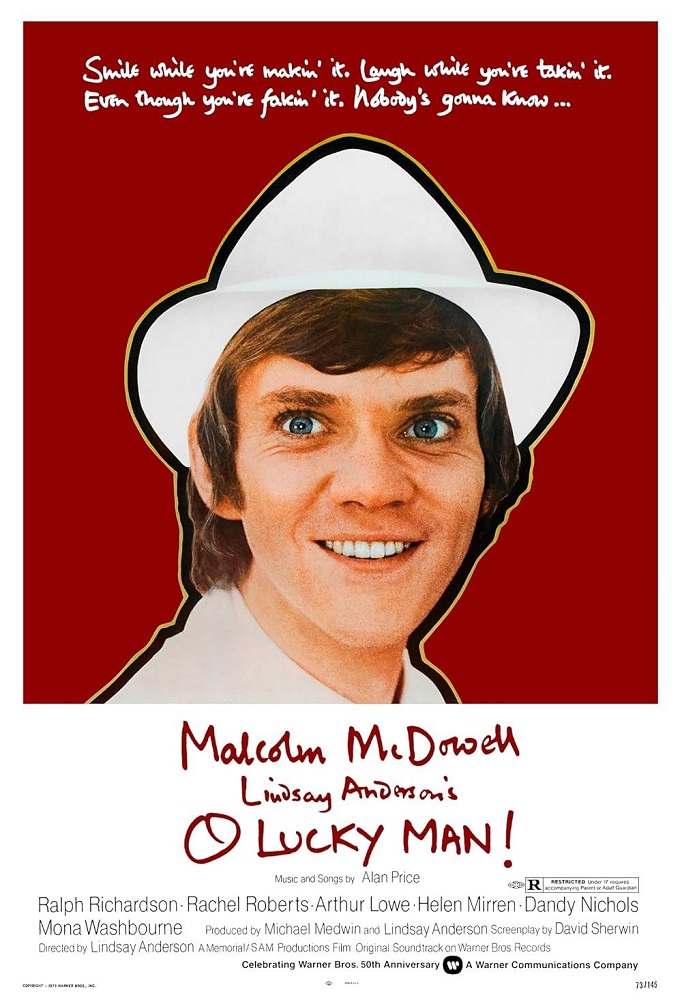Crew
Director – Lindsay Anderson, Screenplay – David Sherwin, Story – Malcolm McDowell, Producers – Lindsay Anderson & Michael Medwin, Photography – Miroslav Ondricek, Music/Songs – Alan Price, Special Effects – John Stears, Production Design – Jocelyn Herbert. Production Company – Memorial Enterprises/SAM.
Cast
Malcolm McDowell (Mick Travis), Ralph Richardson (Monty/Sir James Burgess), Helen Mirren (Patricia Burgess/Film Company Secretary), Rachel Roberts (Gloria Roe/Madame Paillard/Mrs Richards), Graham Crowden (Professor Stewart/Professor Millar/Meths Drinker), Arthur Lowe (Mr Duff/Charlie Johnson/Dr Minda), Peter Jeffrey (Imperial Coffee Factory Chairman/Prison Govenor), Philip Stone (Interrogator/Jenkins/Salvation Army Officer), Mary McLeod (Mary Ball/Salvationist/Vicar’s wife), Dandy Nichols (Tea Lady/Neighbour), Mona Washbourne (Sister Hallett/Usher/Neighbour)
Plot
Mick Travis is an eager young trainee salesman with the Imperial Coffee Company. When the sales rep for the North-Eastern region of England absconds and a replacement is needed in a hurry, Mick is chosen as the most enthusiastic. He settles into the job with relish. Within weeks he is promoted to cover all of Scotland. This propels him into a bizarre series of adventures where he strays onto a military base and is thought to be a spy; accepts £100 to become a scientific guinea pig; falls in with a group of travelling hippies; becomes an assistant to a ruthless businessman who is preparing to gas rebels in order to set up a production line in the African republic of Zingara; is jailed; and finally obtains the lead role in a film called ‘O Lucky Man!’.
O Lucky Man! was the second in Lindsay Anderson and Malcolm McDowell’s trilogy of loosely connected black social comedies set around the character of Mick Travis, which they began with If … (1968) and completed with Britannia Hospital, a savage indictment of Thatcherism. If… was a liberatingly anarchic fantasy that revelled in tearing down the institution of a British boys’ boarding school. Regrettably, by the time of O Lucky Man! that anarchy has become bombastic and swollen social satire. It became even more so by the time of Britannia Hospital.
O Lucky Man! is a rambling and episodic film – where Lindsay Anderson is clearly unconcerned about pace – that eventually runs to just over three hours in length. Many sequences like the dated hippy interludes and the interminable cutaways to musician Alan Price and his band who repeat the theme tune several times over throughout could have been cut without any noticeable difference.
However, O Lucky Man! does have its moments of genuinely black humour – like the scenes at the military base where the tea lady serves the interrogators their morning tea as Malcolm McDowell is brutally bound into an electric chair; the two cops who arrive at the scene of a car crash, start looting the wrecked van, and suggest that McDowell shouldn’t report it in, in fact could be arrested as a homicide suspect if he did; or the dark and depressing scenes that contrast McDowell trying to offer words of hope to housewife Rachel Roberts, showing the patent absurdities of his positive thinking contrasted with the downbeat realities of working class life.


A business conference, which uses footage taken from a real third world production line and of napalm victims in Vietnam and comes overlaid with a cold, dispassionate discussion about market feasibility and the suppression of rebel forces, succeeds in hitting a blackness that is almost unwatchable. Anderson is happy to get jabs in on both sides of the political fence – at one point, a wall is amusingly graffitied ‘Revolution is the opium of the intellectuals.’
All of this was apparently taken from real life incidents that occurred to Malcolm McDowell who worked as a coffee salesman before becoming an actor – it makes you wonder. McDowell, an actor who can balance a zany cockiness with a deadpan clipped militariness that can vary between self-parody and perfect seriousness (all of which he is required to do throughout the film’s running), is perfectly suited here.


